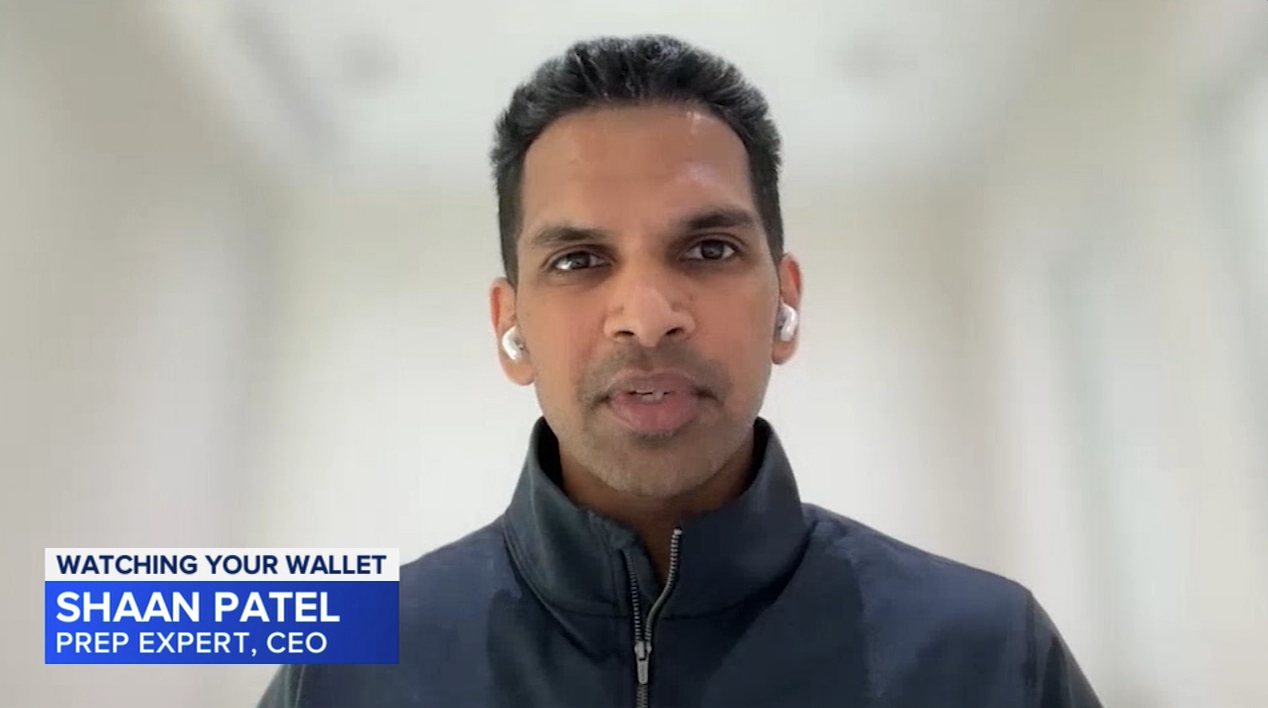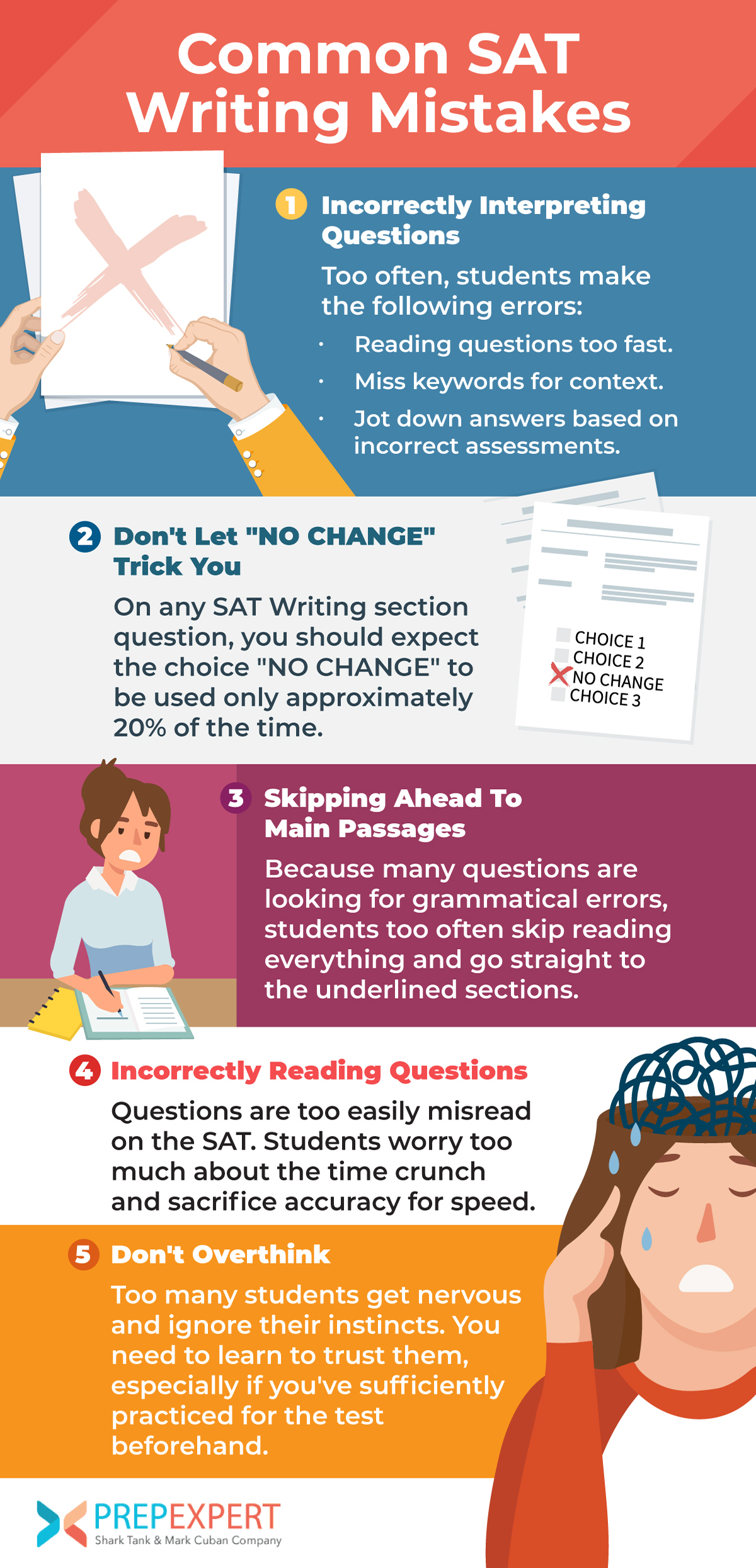Common SAT Writing Mistakes
Don’t let the revamped SAT Writing section trip you up on test day; it doesn’t have to be a struggle to succeed.
Here are a number of common SAT Writing mistakes that students often make but can be easily avoided.
Take a minute to see how our SAT prep course options can help you avoid these many common but silly mistakes.
[sat_one]
Incorrectly Interpreting Questions
You need to find a balance between time and analysis.
The SAT Writing section throws a lot of questions at you with relatively little time to answer. The test makers know this fact, so you have to adapt. Too often, students make the following errors:
- Reading questions too fast.
- Miss keywords for context.
- Jot down answers based on incorrect assessments.
It’s common for a question writer to throw in a couple of words that dramatically alter a sentence’s meaning but being subtle about it. If you’re confused about a question, it’s better to:
- Take 2-3 extra seconds to re-read.
- Circle keywords or words that define the question.
- Check that your response answers the question sufficiently.
- Take keywords into account.
Don’t Let “NO CHANGE” Trick You
On any SAT Writing section question, you should expect the choice “NO CHANGE”.
Sometimes it will be correct, but don’t fall for using it too much. That answer choice should only be expected to be used approximately 20% of the time.
Each test administration may fluctuate its usage, but that’s the normal average. However, too many students use it more than that because:
- They rush through the section too quickly.
- They miss a key grammatical error.
Before choosing “NO CHANGE”, go back and recheck the question two or three times. More than likely, you’ll spot an error that was hidden in the writing on purpose.
[sat_two]
Skipping Ahead To Main Passages
Because many questions are looking for grammatical errors, students too often skip reading everything and go straight to the underlined sections.
It’s understandable because they want to save time for answering. Unfortunately, by not skimming all of the passages, test takers don’t understand the logic and structure that’s tested via Command of Evidence questions.
Skim through the passages and be able to:
- Identify introductory and concluding paragraphs.
- Assess the main idea.
- Identify the passage’s objectives.
You don’t have to read everything in major detail, but taking the time to understand the entire piece will benefit you.
Incorrectly Reading Questions
Questions are too easily misread on the SAT.
The biggest reason for this mistake is time. Students worry too much about the time crunch and sacrifice accuracy for speed. Unfortunately, you need both attributes.
Without accuracy, you’ll put down an answer, but there’s no guarantee it’s correct. When answering the questions in this section:
- Read the questions at least twice.
- Circle keywords that define what is being asked.
- Make sure your answer clearly provides what the question is seeking.
You might have to sacrifice an extra couple of seconds, but having the right answer is more important to your score than finishing early.
Don’t Overthink
With so much on the line, overthinking is easy to do.
Don’t give in to the temptation. Too many students get nervous and ignore their instincts. You need to learn to trust them, especially if you’ve sufficiently practiced for the test beforehand.
Overthinking questions will only lead to the following results:
- Decreased answer accuracy.
- Wasted time.
Sometimes the answer will seem so obvious that you’ll question it, there’s no need. Examine it, and if it looks correct from your experience and preparation then go with it.
Remember that test prep doesn’t only teach you how to handle the test, but also how to handle yourself under this degree of pressure.
[sat_three]
For more test strategy, college admissions, and scholarship application tips sign up for our FREE class happening right now!
Written by Dr. Shaan Patel MD MBA
Prep Expert Founder & CEO
Shark Tank Winner, Perfect SAT Scorer, Dermatologist, & #1 Bestselling AuthorMore from Dr. Shaan Patel MD MBA

The Student Loan Rules Just Changed—And Most Families Aren’t Ready
By Dr. Shaan Patel, CEO & Founder of Prep Expert® Student loans have always been complicated. But starting in…

Confidence Is the Hidden Score Booster No One Talks About
Most students think SAT® and ACT® success comes down to knowing more math formulas or grammar rules. That’s only half…

What Kind of SAT Score Gives You a Good Chance at a Scholarship in 2026?
As more colleges remain test optional, students often assume standardized test scores no longer matter for scholarships– but that’s a…
